I tested 6 top LiveAgent alternatives in 2026: Here’s what I found

Kenneth Pangan

Katelin Teen
Last edited January 16, 2026
Expert Verified
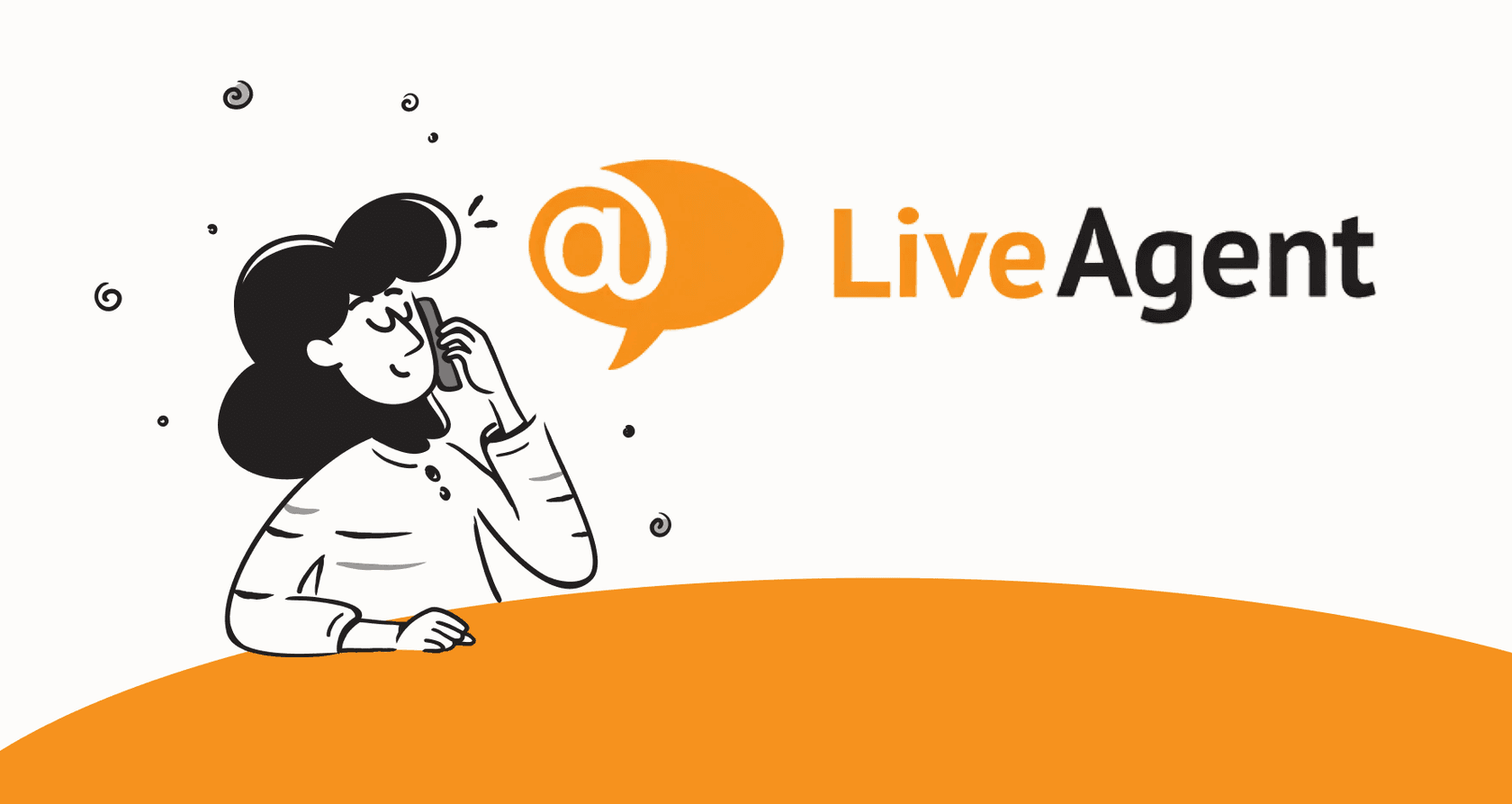
LiveAgent has definitely earned its reputation as a reliable, all-in-one helpdesk. It packs ticketing, live chat, and even a call center into a single platform, which is great for a lot of businesses. But as customer support gets smarter, many teams are starting to feel a bit stuck. The demand for better AI automation, a smoother user experience, and more flexibility is pushing people to look for some solid LiveAgent alternatives.
If that sounds familiar, you're in the right spot. I’ve spent some real time with the most popular alternatives out there to see how they actually compare. This guide is my straightforward, honest take on what works and what doesn't, to help you find a tool that does more than just replace LiveAgent, it actually improves your whole support setup.
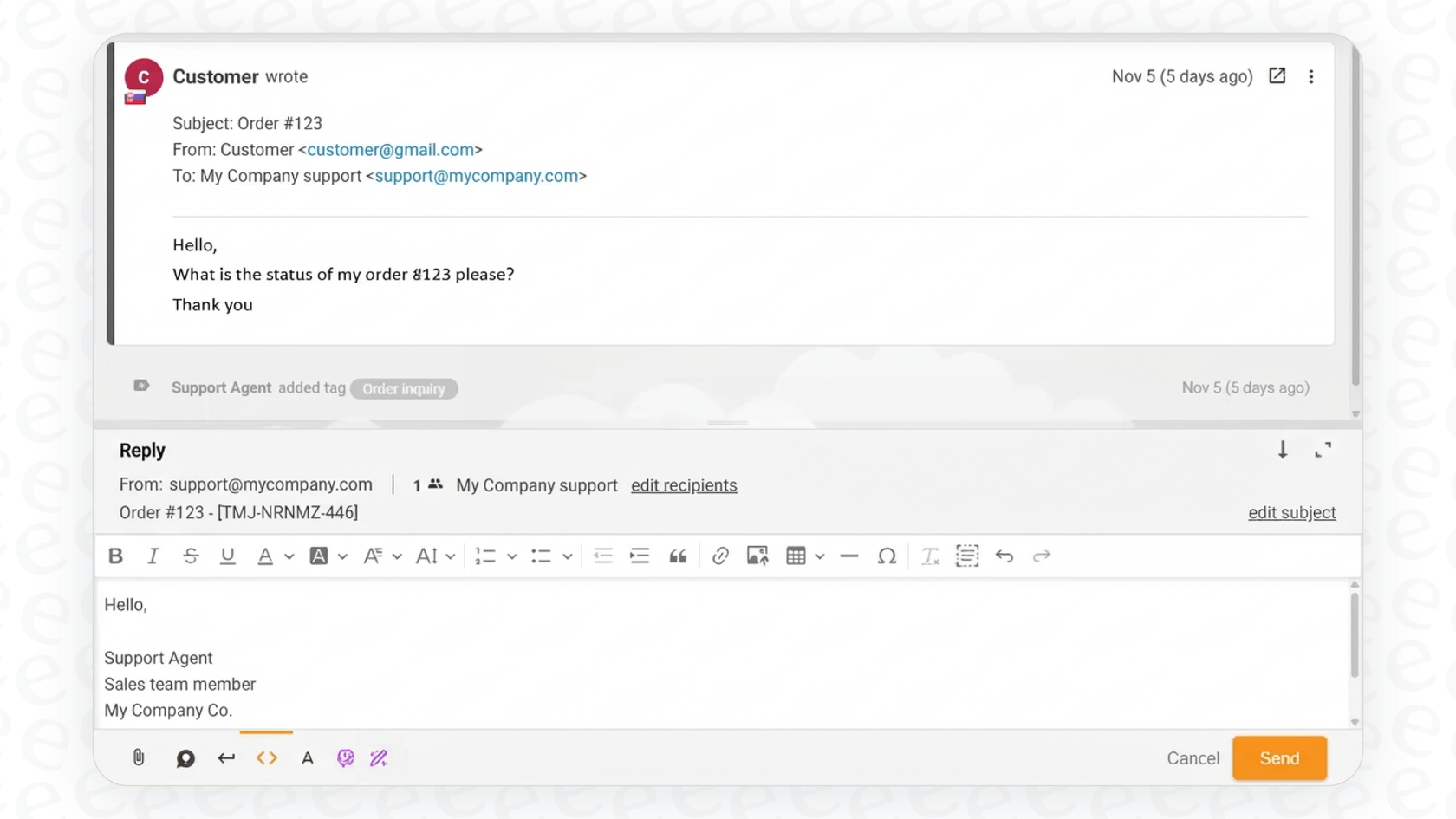
What are LiveAgent alternatives?
Simply put, LiveAgent alternatives are other customer service tools that take a different angle on managing support. Some are direct competitors that offer a similar all-in-one package. But honestly, the most interesting ones are the modern tools that specialize.
We’re talking about platforms built around AI-first automation, tools designed to plug seamlessly into your existing stack, or solutions focused on specific channels, like proactive chat. They all solve the same problem, helping you deliver great support, but often with more smarts and less hassle.
Why look for LiveAgent alternatives?
LiveAgent has a ton of features, but being a "jack-of-all-trades" can sometimes be its biggest weakness. Teams usually start shopping around when they hit one of these common roadblocks:
-
It can be a pain to set up and use. With so many features crammed in, the platform can feel clunky and overwhelming. This often means a steep learning curve and a lot of training time for new agents.
-
The AI and automation feel a bit basic. LiveAgent has an AI chatbot, but it doesn't have the deep, workflow-integrated smarts of more modern platforms. It can't learn from all your different knowledge sources or handle complex jobs like automatically sorting tickets or drafting smart replies.
-
You’re locked into one system. Being forced into a single, all-in-one model can be limiting. Maybe you’re perfectly happy with your current helpdesk and don’t need a built-in call center, you just want to add some powerful AI without a massive migration project.
-
The pricing can be tricky. Some plans put limits on important features or integrations (like how many WhatsApp accounts you can connect), pushing you toward upgrades just to get what you need.
How I chose the best LiveAgent alternatives
To keep this comparison fair and useful, I judged each platform on the same set of criteria that most support teams actually care about. This isn't just a feature checklist, it’s a look at how these tools perform in the real world.
-
AI & automation: How well does the tool actually use AI to answer tickets, help out agents, and automate tedious tasks?
-
Ease of use: Can you get it up and running yourself in a few minutes, or are you stuck waiting for demos and sales calls?
-
Integrations: How nicely does it play with the tools you already rely on, like your helpdesk, knowledge bases, and team chat apps?
-
Core features: Does it handle the basics of ticketing, live chat, and knowledge management well?
-
Pricing: Is the cost clear and predictable? Do you get enough value for your money?
A quick comparison of the top LiveAgent alternatives
Here’s a bird's-eye view of how my top 6 picks compare.
| Tool | Best For | Key Features | Starting Price | G2 Rating |
|---|---|---|---|---|
| eesel AI | Teams that want to automate support without replacing their helpdesk | AI Agent, Copilot, Simulation Mode, Unified Knowledge | $299/month | N/A |
| Zendesk | Large enterprises needing a powerful, scalable, all-in-one solution | Advanced Ticketing, Analytics, App Marketplace | $55/agent/month | 4.4 / 5 |
| Freshdesk | SMBs looking for a user-friendly and feature-rich helpdesk | Intuitive UI, Freddy AI, Omnichannel Support | $0 (up to 10 agents) | 4.5 / 5 |
| Help Scout | Teams that prioritize a simple, human-centric support experience | Shared Inbox, Docs Knowledge Base, No Ticket Numbers | $22/user/month | 4.4 / 5 |
| Zoho Desk | Businesses already invested in the Zoho ecosystem | Deep Zoho Integration, Zia AI, Affordable Plans | $0 (up to 3 agents) | 4.5 / 5 |
| Hiver | Teams who want to manage all support from their Gmail inbox | Google Workspace Integration, Email-centric Workflow | $19/user/month | 4.6 / 5 |
The 6 best LiveAgent alternatives for your support team in 2026
1. eesel AI
eesel AI is different. It’s not another helpdesk you have to migrate to. Instead, it’s a smart AI layer that plugs right into the tools you’re already using, like Zendesk, Freshdesk, or Slack. The idea is to automate your frontline support, help agents draft replies, and sort tickets without making you switch platforms.
Why it's on the list: What I liked about eesel AI is that it focuses on solving the main problem, which is usually too many tickets and repetitive work, without the headache of a "rip and replace" project. It pulls knowledge from all your scattered sources, think past tickets, Confluence pages, Google Docs, and Notion, to give accurate answers right away.

Pros:
-
You can go live in minutes. It’s completely self-serve. You just connect your helpdesk and knowledge bases with a click and you’re good to go in under 5 minutes. No sales call needed.
-
You can test it safely. Its simulation mode is really cool. It lets you test the AI on thousands of your old tickets so you can see how well it performs and what your ROI will be before you turn it on for customers.
-
You’re in complete control. You get to decide exactly which tickets the AI handles and what it’s allowed to do, whether that’s escalating to a human or looking up order info using an API.
-
Clear pricing. The plans are based on usage, so you don’t get hit with unpredictable fees for every ticket the AI resolves.
Cons:
- It's not a standalone helpdesk. It's designed for teams who want to add a powerful AI brain to their existing setup, not replace it entirely.

Pricing: eesel AI offers a 7-day free trial. Paid plans are based on monthly AI interactions.
-
Team Plan: $299/month ($239/month if billed annually) for up to 1,000 interactions.
-
Business Plan: $799/month ($639/month if billed annually) for up to 3,000 interactions and includes the full AI Agent and training on past tickets.
-
Custom Plan: Custom pricing for more advanced needs and unlimited interactions.
2. Zendesk
Zendesk is the industry leader in the customer service world. It’s a comprehensive platform that can handle just about anything a big enterprise can throw at it. With a mature ticketing system, deep analytics, and a marketplace with over 1,000 apps, you can customize Zendesk to fit any unique business need.

Pros:
-
Super scalable and reliable for companies of all sizes.
-
Excellent reporting and analytics tools that provide deep business insights.
-
A massive ecosystem of integrations and marketplace options.
Cons:
-
Zendesk offers a variety of tiered plans to match different team requirements.
-
As a highly capable platform, it provides extensive customization options that may require some initial time to configure for your specific workflows.
-
The platform's integrated ecosystem is designed to provide a unified experience, making it a powerful choice for teams looking to centralize their support.
Pricing: Zendesk’s pricing is split into different plans, all priced per agent, per month (and billed annually).
-
Suite Team: $55. This gets you omnichannel support, basic AI, and a help center.
-
Suite Professional: $115. Adds advanced AI, custom analytics, and SLA management.
-
Suite Enterprise: $169. For large-scale needs with custom roles and advanced security.
3. Freshdesk
Freshdesk is a popular choice because it’s just so easy to get the hang of. It offers a full suite of features for omnichannel support, including ticketing, live chat, and social media, making it a great all-around pick for small and medium-sized businesses.
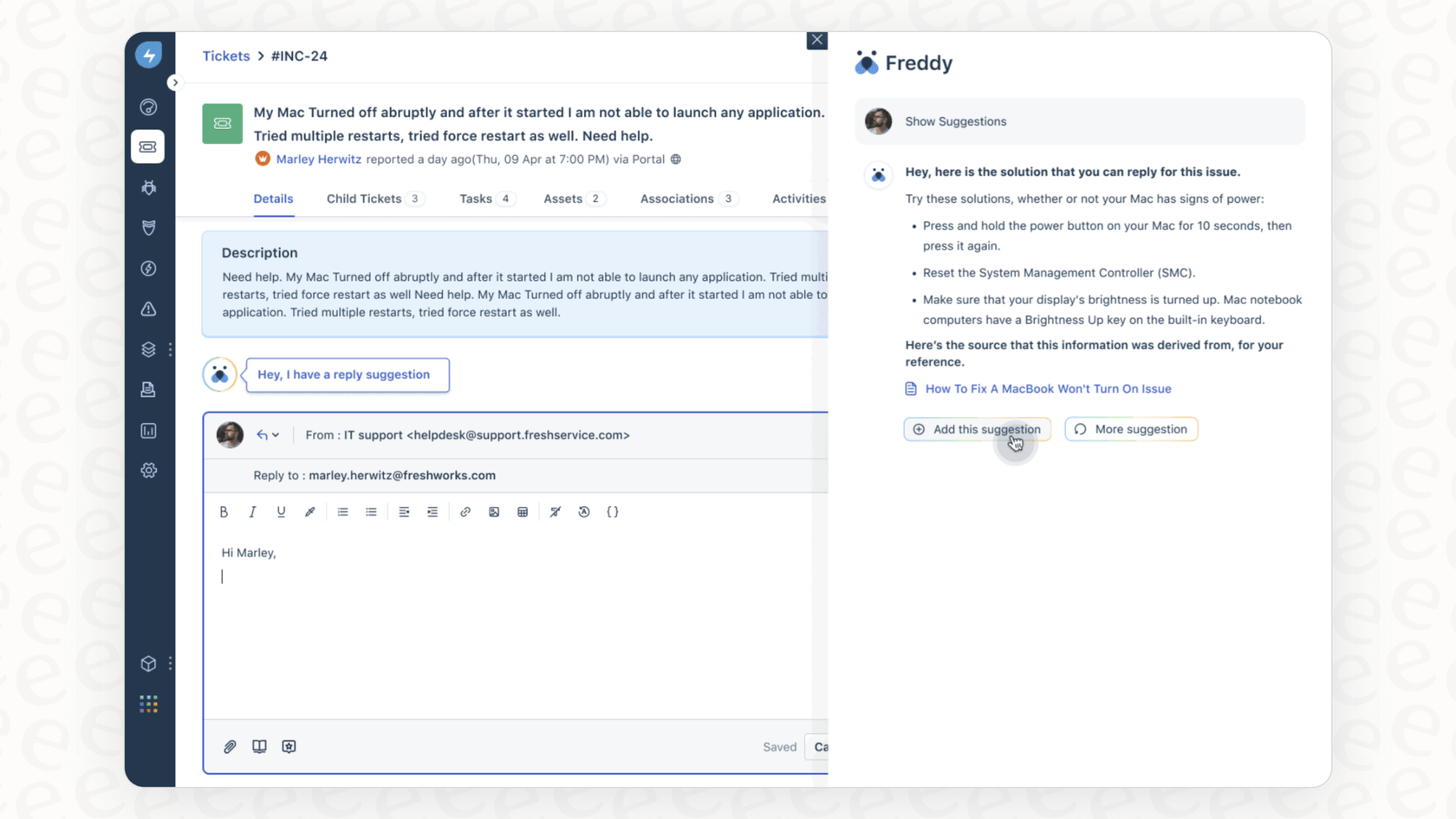
Pros:
-
The interface is clean and modern, and much easier to learn than Zendesk.
-
It has strong automation features for routing and managing tickets.
-
There's a really generous free plan for up to 10 agents.
Cons:
-
Freddy AI offers a wide array of capabilities that continue to expand and integrate across the platform.
-
The platform is highly optimized for the Freshworks ecosystem, providing a unified and consistent user experience.
Pricing: Freshdesk has a free plan for up to 10 agents. Paid plans, billed annually, include:
-
Growth: $15/agent/month. Adds automation and a customer portal.
-
Pro: $49/agent/month. Adds custom reporting and advanced ticketing.
-
Enterprise: $79/agent/month. Adds an audit log and skill-based assignment.
-
AI Add-ons: The Freddy AI Copilot costs an extra $29/agent/month on the Pro and Enterprise plans.
4. Help Scout
Help Scout is for teams that want to offer support that feels personal and human. It intentionally avoids corporate jargon like "tickets" and calls them "conversations." Its shared inbox is clean and easy to use, and its Docs knowledge base is one of the best around.
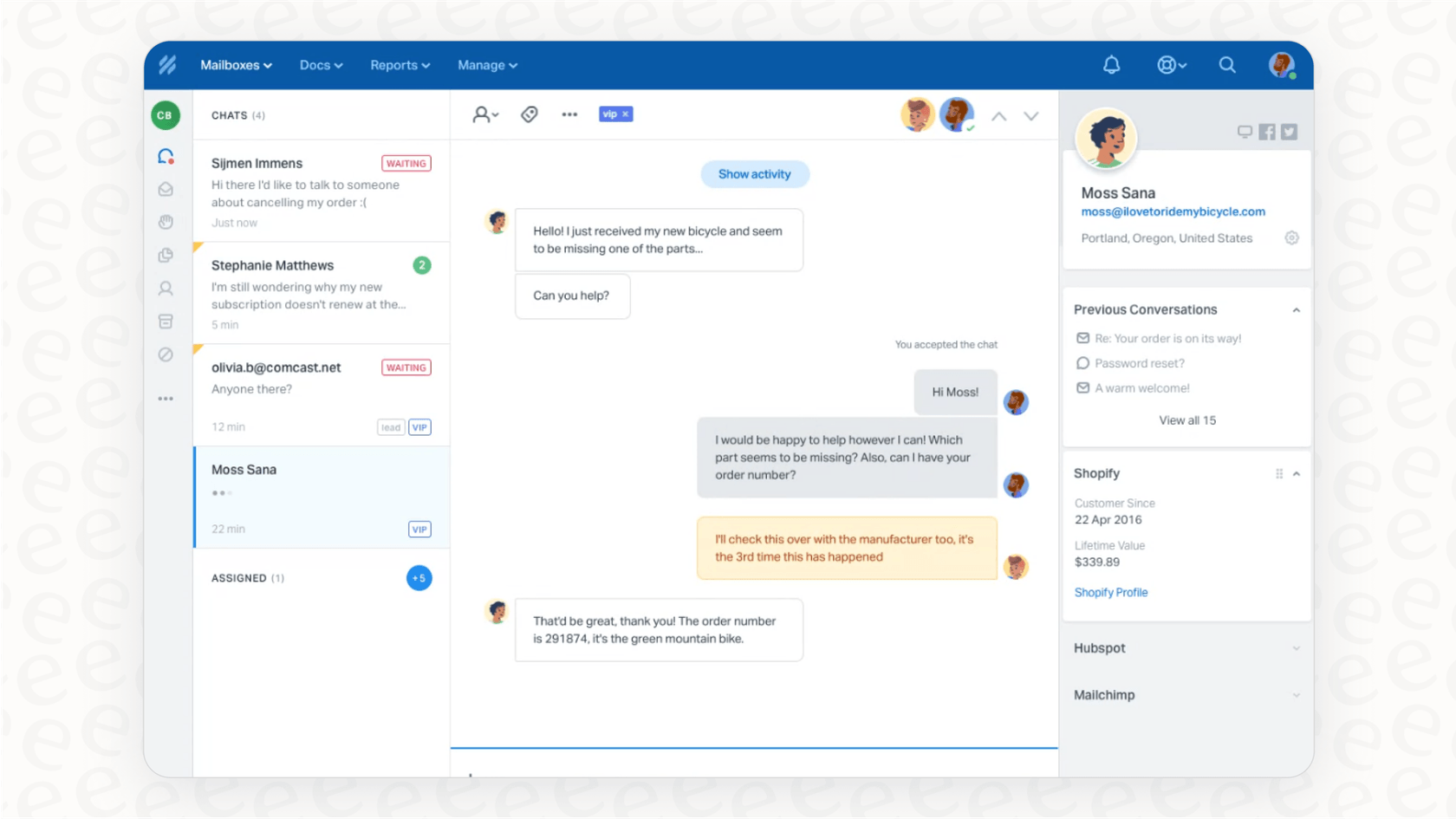
Pros:
-
The user interface is simple, intuitive, and not cluttered with stuff you don't need.
-
The tool for building a knowledge base is excellent.
-
The whole platform is focused on a personal touch, which customers tend to love.
Cons:
-
It doesn't have the advanced AI or workflow automation you find in other tools.
-
The reporting features are more basic compared to the enterprise-level platforms.
Pricing: Help Scout has a free plan for up to 5 users. Paid plans, billed annually, are:
-
Standard: $22/user/month. Gives you multiple inboxes and knowledge bases.
-
Plus: $40/user/month. Adds advanced workflows and more integrations.
-
Pro: $65/user/month. Adds HIPAA compliance and SSO.
-
AI Answers Add-on: The chatbot costs an extra $0.75 per resolution.
5. Zoho Desk
If your business is already using other Zoho products, then Zoho Desk is a no-brainer. It integrates deeply with Zoho CRM and their other apps, giving you a complete picture of the customer. It's also known for being affordable and having a pretty helpful AI assistant called Zia.
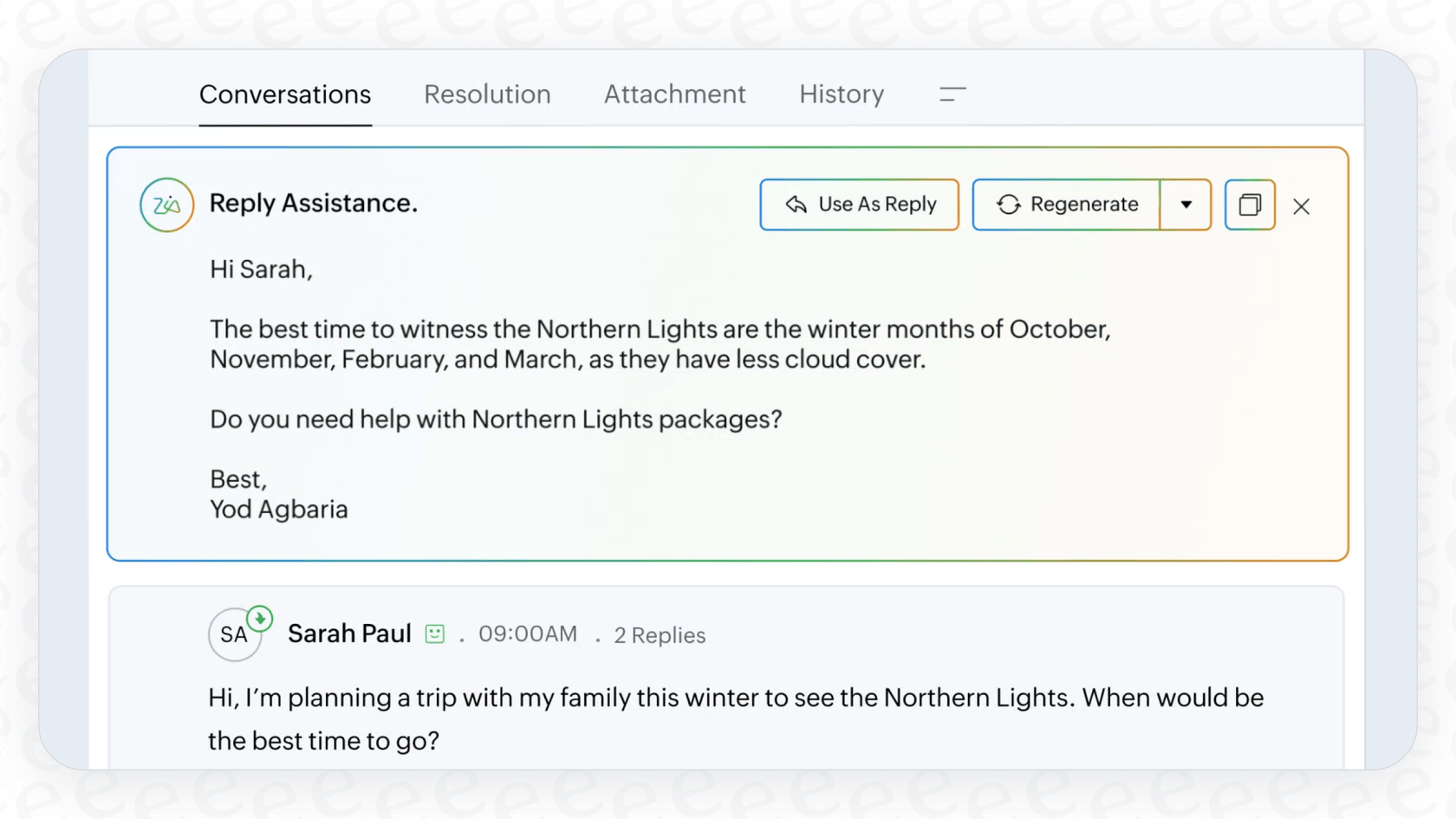
Pros:
-
Flawless integration with the rest of the Zoho ecosystem.
-
Very competitive pricing, including a solid free plan.
-
The Zia AI offers useful things like sentiment analysis.
Cons:
-
The user interface can feel a bit dated compared to its competitors.
-
It can feel overly complicated if you’re not already bought into the Zoho world.
Pricing: Zoho Desk offers a free plan for up to 3 agents. Paid plans, billed annually, include:
-
Standard: $14/user/month. Adds social media channels and a knowledge base.
-
Professional: $23/user/month. Adds phone support and multi-department features.
-
Enterprise: $40/user/month. Includes the Zia AI assistant, live chat, and multi-brand help centers.
6. Hiver
Hiver has a really unique angle: manage customer support without ever leaving your Gmail inbox. It's built specifically for Google Workspace and turns Gmail into a powerful helpdesk with features for assigning emails, avoiding duplicate replies, and running basic reports.
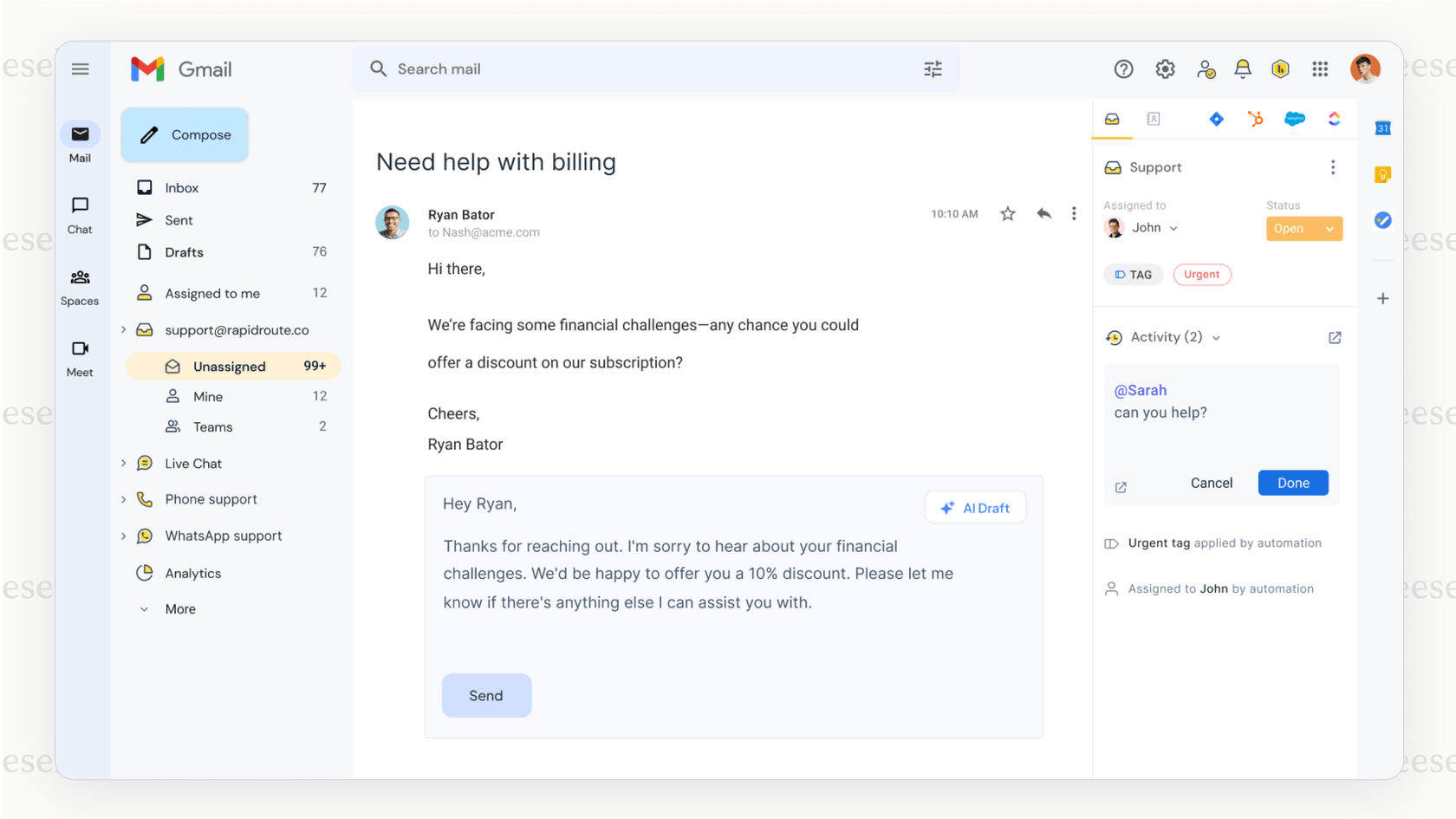
Pros:
-
There's no new software to learn since it works right inside Gmail.
-
It’s perfect for teams that get most of their support requests through email.
-
Super simple to set up for anyone who uses Google Workspace.
Cons:
-
It only works for Google Workspace users.
-
It doesn't have the advanced features or omnichannel support of a standalone helpdesk.
Pricing: Hiver has a free plan with unlimited users but limited features. Paid plans, billed annually, are:
-
Growth: $19/user/month. Adds automations and SLAs.
-
Pro: $39/user/month. Includes CSAT surveys and chatbots.
-
Elite: $59/user/month. Adds skill-based routing and custom roles.
-
Hiver AI Add-on: Available for an extra $20/user/month, it adds features like AI Summarizer.
Tips for choosing the right LiveAgent alternatives
Switching platforms is a big deal. Ask yourself these questions to help guide your choice.
-
What’s your biggest problem right now? Is it a messy inbox (Help Scout, Hiver), a need for better customer engagement, or just a mountain of repetitive questions? If it's the last one, an AI-first tool is probably your best bet.
-
What's the real cost of AI? Don't just look at the monthly price. A tool like eesel AI has clear pricing and a simulation mode that lets you accurately predict your cost savings before you sign up. Try to avoid tools with unpredictable per-resolution fees that end up costing you more as you get more efficient.
-
How much time do you have for setup? Do you have weeks to spend on implementation and training? Or do you need something that just works? The difference between setting up a high-end enterprise solution and a self-serve tool is huge.
-
Do you really need to start from scratch? Before you go through a painful migration, think about whether an AI layer is all you actually need. Solutions like eesel AI can boost your current helpdesk with top-tier automation without messing up your team's existing workflow.

Ready to upgrade your support with LiveAgent alternatives?
Moving on from LiveAgent isn’t just about finding a replacement, it's about picking a tool that’s ready for the future of customer service. The best LiveAgent alternatives offer smarter AI, a better user experience, and the freedom to work with the tools you already use and like.
While traditional helpdesks still have their uses, the biggest improvement you can make is by using AI that truly works for your team. eesel AI offers powerful, flexible, and easy-to-set-up AI automation without forcing you to ditch your current helpdesk. It learns from your team's existing knowledge to provide accurate answers, saving everyone time and making your customers happier.
Ready to see what a modern, AI-powered support system can do for you?
Go live with AI in minutes. Connect your knowledge sources and start your free eesel AI trial today.
Frequently asked questions
Many teams look for LiveAgent alternatives due to challenges like a clunky setup, basic AI capabilities, or being locked into a single system. Exploring alternatives can lead to better AI automation, a smoother user experience, and more flexibility in your support setup.
When evaluating LiveAgent alternatives, focus on AI & automation capabilities, ease of use and setup time, integration options with your existing tools, core features like ticketing and knowledge management, and clear, predictable pricing models. These criteria help ensure the tool fits your real-world needs.
Yes, eesel AI is a prime example of LiveAgent alternatives designed for this. It functions as an AI layer that integrates with your existing helpdesk and knowledge bases, automating support and assisting agents without forcing a complete system overhaul.
Pricing for LiveAgent alternatives varies significantly; platforms like Zendesk and Freshdesk offer structured per-agent plans, while others include usage-based fees for AI resolutions (e.g., Help Scout). Tools like eesel AI offer transparent pricing based on AI interactions, allowing for predictable cost management.
Hiver is an excellent choice among LiveAgent alternatives for teams deeply integrated into Google Workspace. It transforms your Gmail inbox into a powerful helpdesk, allowing you to manage customer support directly within the familiar Gmail interface.
Share this post

Article by
Kenneth Pangan
Writer and marketer for over ten years, Kenneth Pangan splits his time between history, politics, and art with plenty of interruptions from his dogs demanding attention.





